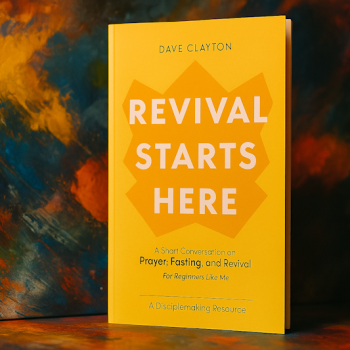
The church is in the Lent season, a period of reflection, repentance, and preparation leading up to Resurrection Sunday. Though I did not grow up in church movements that celebrated Lent, nor was I shaped in a movement that had a regular practice of the liturgical church calendar, I have come to appreciate Lent. Even more, I have often thought of this as a season that invites us to do an inventory of our lives. Inventory is “an itemized list of current assets” or deficiencies, but it is also the analyzing one’s “traits, preferences, attitudes, interests, or abilities used to evaluate personal characteristics or skills” or lack thereof (Merriam Webster).
The Significance of Inventory: Reflecting on Lent’s Purpose
Early on in my vocational endeavors, I explored a few different retail positions, and inventory was a necessary part (or evil) of the role. At least once a year we analyzed what we had in stock, or did not have in stock. By the way, I think I still get triggered by the word from the inventories that I performed in grocery, toy, and candle stores (yes I worked in a candle store, it’s a long story). In admitting what you have or don’t have, you are practicing not only awareness but confession. Inventory is a confessional activity. Confession is merely “an acknowledgement of guilt,” which may include a sin or shortcoming (Merriam Webster).
It is in Lent that we wrestle with, remember, and reflect through Jesus’ forty days of fasting from the busyness of life in the wilderness, to reflect on and mark the start of his earthly call and ministry.
Jesus in the Wilderness: A Model for Lenten Inventory
During his time in the wilderness, Jesus faced the human traps of appetite, ambition, and affirmation. Those temptations, and our capacity for them, are what we are inventorying in our own life in Lent. Elsewhere in the scriptures, these temptations are referred to as the lust of the flesh, the lust of the eyes, and the pride of life. The Lent season is a time in which we also wrestle with, remember, and reflect on our journey through the difficult and desert moments of life. We utilize the disciplines of fasting, prayer, surrender, and lament in Lent to realign to the ways and heart of God, detaching from the unhealthy ways we have built our lives around our appetites, our unhealthy ambition, and the need for affirmation from others. Fasting, prayer, surrender, and lament are also confessional activities. Through inventory, and these other confessional acts, we purge ourselves of the weighty hindrances and worldly ways that we picked up in our carnal detours and we find ourselves back in alignment with God’s heart.
The Temptations of Appetite, Ambition, and Affirmation: A Call to Inventory
This important and confessional work of inventorying our lives and looking at the unhealthy ways that we have built our lives around “the lust of the flesh, the lust of the eyes, and the pride of life” is essential for those who desire to be Jesus’ followers (1 John 2:16). Life has a way of tempting us to yearn for realities, focusing on wants, and pursuing cheap identities in places that can be quite harmful to us and our spiritual journeys. We often settle for something less than God’s best in our spiritual journey. (Let me just tangent here and share that Kevin Bradford spoke at River Corner Church and gave a great look at this fact of our journeys in last week’s sermon on God’s Guidance.) Often these things we yearn for, focus on, and pursue are worldly at best but even more they are sinful and even evil at times.
Sometimes the lust of the flesh, the lust of the eyes, and the pride of life that we find ourselves unhealthily and unhelpfully dependent on or pursuing are not outrageously bad or sinful things. These pursuits might even be good things but when they are out of balance in our lives they become detrimental to our journeys, they become sin, acts of desolation that take us further from God and God’s plan for our lives. Undoubtedly, we as broken and mortal beings will unconsciously and consciously develop our lives around the things that we think will make us feel better or more whole. For this reason, if we are not intentional with inventorying our lives, we will find our lives attached to our appetites, our need for affirmation, and sinful ambitions. John, an earlier follower of Jesus remarks, that these lusts and pride are “not of the Father but [are] of the world” (1 John 2:16). Inventorying our lives as broken creatures in a broken world, looking for what is not of the Father but is of the world, is hard work that can be tiring, revealing, and uncomfortable.
Confession and Realignment: Practicing Lenten Disciplines
The temptation story in Matthew 4 also marks an important and pivotal transition in Jesus’ life. The wilderness is a chasm between the season of Jesus’ earthly life that is ending and on the other side of it is the prophetic ministry Jesus has to live out. If you think about it, it is at that moment that Jesus leaves behind the life that he had up to that moment, he follows the leading of the Holy Spirit and Jesus enters into a remarkable experience in the wilderness where he, from an earthly viewpoint, seemingly and recklessly abandons all of aspects of normal life to connect with God the Father and the plan that God the Father has for his life. In the wilderness, Jesus lets go and models what it means to depend fully on God but also to fully realize the identity that God the Father spoke over him in the baptism story. We remember this as well in Lent. It is in the wilderness that Jesus models resilience with God’s help, the leading of the Spirit of God and the sustainability of scriptures.
Jesus, in the wilderness, is modeling what it means to completely depend on God’s provision – not the other stuff in life. As Jesus emerges from the forty days in the wilderness, Jesus not only shows victory over where God’s people have always struggled, but he also models stepping fully into a new way of living, into the fulfillment of his earthly ministry, and into a revolutionary way of living out dependence on God. From that time on Jesus began to preach, “Repent, for the kingdom of heaven has come near” (Matthew 4:23). Jesus calls others to have these same confessional and pivotal shifts in which they change from the other stuff in life to Kingdom stuff. We cannot ignore the importance of regularly pulling away into rest and solitude to depend on God, to practice confession as we are led by the Spirit to inventory our lives and the places we are out of alignment so that we can live more faithfully and better embody, demonstrate and proclaim the way God’s rule and reign is breaking into our reality.
Living a Quiet Life: Embracing Lent’s Confessional Nature
This Lead A Quiet Life blog on Patheos reflects on what it means to live life at a slower pace, to discover a simple life and faith that embraces downward mobility in a chaotic world and church obsessed with excess. For me, this discovery of a simple life and faith is anchored in what means to lead a quiet life according to Paul’s encouragement in 1 Thessalonians 4:11. In 1 Thessalonians 4:11, the verse encourages believers to aspire and model living a quiet life, to mind their own affairs, and to work with their hands. This more God honoring and fulfilling way of living is reached by recognizing and confessing where we have failed to live into such a way of life. The lust of the flesh, the lust of the eyes, and the pride of life long to complicate our lives with promises of success, fame, fulfillment, and more. What looks like a quick and easy road at first, often leads us into a great sense of unfulfillment, disillusionment, shame, and distraction. For me, this call to simple and quiet living, resonates deeply with the confessional activity of Lent, as we look at where we have accepted promises for a quality of life that are outside God’s best, a quiet life.
In our Lenten practice, we are inventorying our lives, purging of the excess, and realigning our the desires of our hearts back to God’s purposes. Lent invites us to silence the noise of worldly distractions, to turn inward, and to focus on our relationship with God and what is hindering it.
Emerging Renewed from Lent’s Confessional Journey
Perhaps Lent is not only a time to inventory and examine our actions, attitudes, and ambitions, but also a chance to look at the complexity of our lives. Author Michael James Breen remarks that the Lent season is one that invites us see where in our lives (and our church communities) that we have accepted the lure of consumerism, celebrity, and competitiveness. In his article, How Influencer Culture is Killing the Church (for the Verge Network), Michael Breen points out that “those original temptations of Appetite, Affirmation and Ambition are slowly insinuating themselves into everything…We just often don’t recognize it or see it.” We lose sight of what God wants for us and our communities when we accept life in “a culture of celebrity (affirmation), a culture of consumerism (appetite), and/or a culture of competition (ambition)” There is hope though, as part of our confessional activity, Michael Breen points out that “if we think through celebrity, consumerism and competition, the anti-body against all of these is sacrifice. Learning to lay down what builds us up and giving to others instead.” The way on is through greater simplicity and sacrifice to lead a quiet life. I think Breen’s adaptations of the temptations are a prophetic way of looking at the temptations of the lust of the flesh, the lust of the eyes, and the pride of life.
As we journey through this Lenten season, let us pause to take stock or inventory of our own lives and where we have detoured, or where our church communities have detoured. Are we, like Jesus, wrestling with the temptations of appetite, ambition, and affirmation? Are we aligning our hearts with God’s will, or are we entangled in pursuits that lead us away from His purpose for our lives? Let us engage in the sacred work of introspection, prayer, and confession, acknowledging where we have strayed and seeking realignment with God’s heart. Just as Jesus emerged from the wilderness empowered to fulfill his ministry, may we too emerge from this season renewed in spirit, ready to proclaim the nearness of God’s kingdom through lives marked by repentance, humility, and obedience. Let us heed the call to inventory our lives, that we may walk more closely in the footsteps of our Savior.
As we look to lead quiet lives, and reflect on and confess where we have detoured from that journey, I appreciate these three questions from Michael Breen;
- In what ways are your decisions made by a subtle undercurrent of ambition and a hope for celebrity?
- In what ways [are you or] your church community using consumerism as the means to draw people to a Gospel that is, in and of itself, anti-consumerism?
- In what ways are you competing (both in actuality or simply in your mind) against people who are on your own team?













